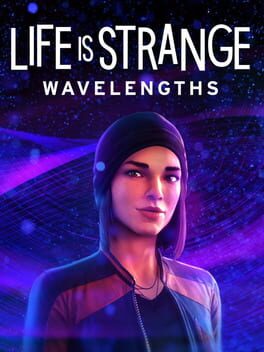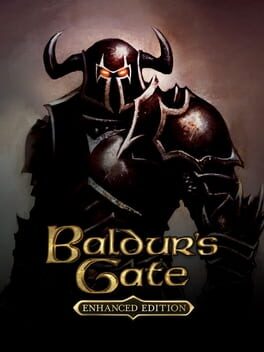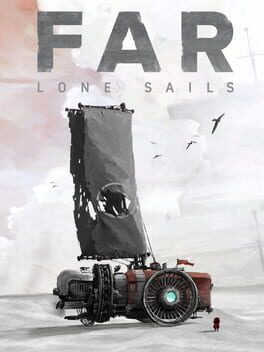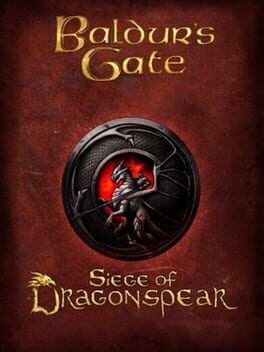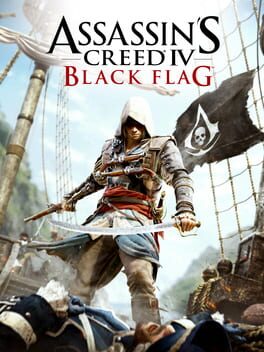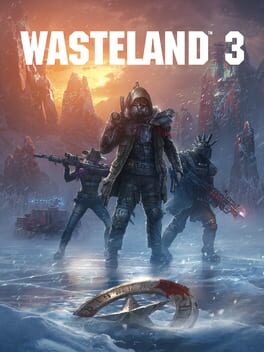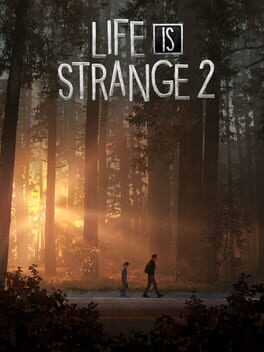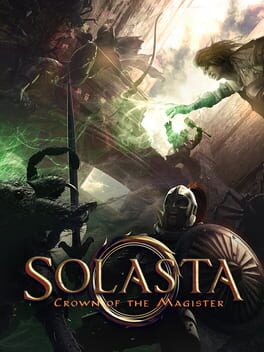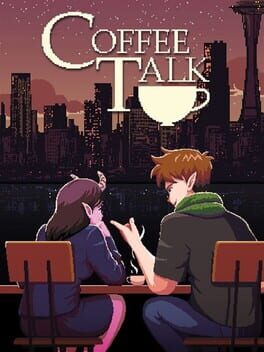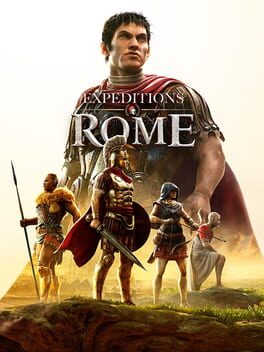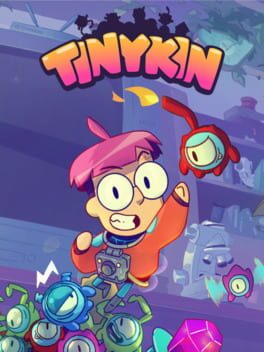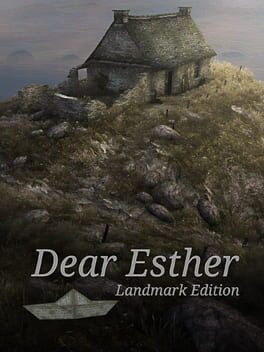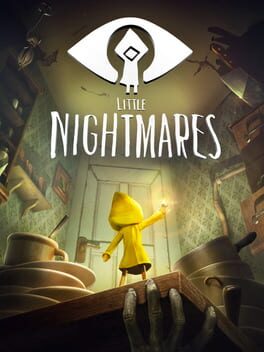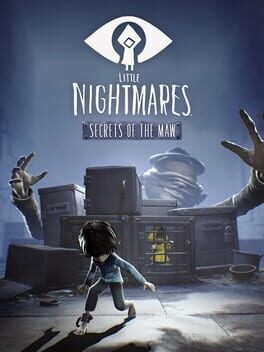diaugupul
It could've been a total failure considering the restrains and limitations of the DLC, but somehow they made it work. The amount of tasks they give you is refreshing and satisfying to tick off, the song selection is on point, and if you're invested in Steph as a character you'll love reading her messages, exploring her trauma (in relation of your choice for Arcadia Bay in the first game) and trying to find her a partner on dating apps. Played the base game on Game Pass and I used Reward points to pay the DLC, so not necessarily the ideal person to talk about value, but I'd wait for a sale. $12 for a 3/4-hour experience that takes place in the same place and has off-screen VO for almost all of it seems pretty steep.
First time playing it, and I really enjoyed it. Used a walkthrough for some of it (the city's quests are a bit of a mess and the constant back-and-forth between city areas can become annoying), but half of the fun really is the exploration and the joy of stumbling into interesting things. A simple combat in an otherwise empty wilderness area can be interesting and satisfying. The main story was fine, nothing revolutionary but good enough, and there's plenty of side quests to do thanks to the Tales of the Sword Coast DLC.
Having said all of that, PLEASE if you're playing the Enhanced Edition, when you reach the ending, just skip the final cinematic and search the original one on YouTube. They completely botched it in the EE and it can ruin an otherwise epic moment.
Having said all of that, PLEASE if you're playing the Enhanced Edition, when you reach the ending, just skip the final cinematic and search the original one on YouTube. They completely botched it in the EE and it can ruin an otherwise epic moment.
2018
Short but very enjoyable experience. I was constantly taking screenshots - the lightning and backgrounds are very pretty. If you enjoy games like Inside don't be scared of the managing/survival mechanics because it's extremely streamlined and it's meant to be just a bit of gameplay in an otherwise very lineal, calming experience.
2022
I was pleasantly surprised by this. The dice mechanic can seem a little bit limiting at first but it creates rhythm and some interesting choices (even though, you can mostly do everything you want in the game just by resting and doing a bit of resource managing). The world is the characters and damn good characters they are. Great writing, extremely cool artwork and atmosphere thanks to its brilliant soundtrack, and a bunch of different endings.
At first I was enjoying it, even though it was a bit jarring to see some changes between BG:EE and this having just played the former - mainly the insane amount of loot, so much that it becomes somehow less exciting and purposeful, and the unnecessary overdesign of some quests. Near the end, I just turned on story mode because I was getting tired of battles with huge numbers of enemies, something that I didn't do during all of BG:EE. I don't regret playing it, but it's been an underwhelming experience.
You can feel the huge jump in polish, quality of life features and moment-to-moment gameplay feel from AC2/AC3 to this. Even though it uses basically the same engine and it has a lot of the same gameplay features, it feels way better and the open world is even ahead of its time (later AC games basically took this formula and run with it). The story is also way better than anything previous in the franchise. My two complaints would be the ship combat, which still felt like cumbersome sometimes, and the way the ending just goes and goes and goes and also features some of the most frustrating combat encounters in the whole game.
2020
Having not played a Wasteland game (or even a Fallout) before, I thought the setting and humor wouldn't grab me but I was completely wrong.
Wasteland 3 is an amazing CRPG with very engaging, satisfying turn-based combat, excellent presentation (the soundtrack, the switch to fully animated NPCs in first-person for important dialogues, the voice acting, the sound effects...) and great writing. The main story is perfectly decent but the best stuff is in the margins — you'll find genuinely hilarious bits in side quests and overall world building. Loved exploring every single location, reading loot descriptions, talking to weird quest givers and absolute psychopaths. It's also a very reactive RPG, with plenty of decisions and a lot of skill checks (in and outside dialogue) that matter.
From a game design perspective, everything feels tight and polished, like a studio that knows what it wants and knows it can deliver it.
The only downside are the technical issues. Playing it in 2022, I still encountered constant Unity crashes, which could happen every five minutes (even during the final credits). Rebooting my PC usually helped, though. I also had a couple quest bugs that I could fix reloading and doing things in a specific order, and then some frame rate issues in Ranger HQ that required to restart the game.
Overall, a fantastic experience. Played 47h in two weeks, and I want more (will look into the two expansions). I also think it's a great first CRPG for players that are looking to get into the genre. Do it!
2018
I actually think this is better than the original Life is Strange and way better than True Colors (which I played before 2). DONTNOD really tried to not only improve every single aspect from the first game but evolve and be more ambitious in terms of scope, themes, choices, representation, etc. I realize now why they left the franchise, because they tried to do so much with this game that probably didn't know where to go next. The easy choice would be to go back to basics, which is what Deck Nine did with True Colors, but what wouldn't satisfy a studio like DONTNOD and I respect that. Life is Strange 2 is a fork in the road, and Deck Nine decided to simply go back.
The journey Life is Strange 2 takes you through is incredible, and way more profound and varied than I expected. You feel these characters grow and you shape them at the same time. The relationship between Sean and Daniel feels authentic, refreshing and extremely well performed. The story goes unexpected places and doesn't end with a perfectly happy ending, but that's life.
Overall I'd say Life is Strange 2 is one of the boldest games I've played. From the themes it tackles to the way it defies expectations. DONTNOD said "ah, you think you know what is a "Life is Strange game"? Then watch this!". Maybe your definition and theirs don't match, but it's undeniable they achieved what they set to make. And, luckily, it really spoked to me.
The journey Life is Strange 2 takes you through is incredible, and way more profound and varied than I expected. You feel these characters grow and you shape them at the same time. The relationship between Sean and Daniel feels authentic, refreshing and extremely well performed. The story goes unexpected places and doesn't end with a perfectly happy ending, but that's life.
Overall I'd say Life is Strange 2 is one of the boldest games I've played. From the themes it tackles to the way it defies expectations. DONTNOD said "ah, you think you know what is a "Life is Strange game"? Then watch this!". Maybe your definition and theirs don't match, but it's undeniable they achieved what they set to make. And, luckily, it really spoked to me.
Really enjoyed my time with it. The main story is kind of predictable but it really picks up near the end with longer missions, new and more inventive areas, and overall higher production values. The UI and tutorialization are top notch and elevate the pretty faithful D&D 5e-based combat system to a very satisfying, well-translated video game experience. Most of the game are combat encounters, with very little design variations, so I think they made the right choice of focusing their development efforts there. Everything else (graphics, side quests, voice acting/directing...) is very serviceable but not really the highlight.
2020
2022
Expeditions: Rome is a very welcome surprise. It’s a very narrative-focused XCOM-like, or a CRPG with tactic and objective-based combat. Or it’s a mix of both and very refreshing for that same reason. It takes cues from Larian’s Divinity: Original Sin 2 (Rome’s developer, Logic Artists, were supposed to make a tactics Divinity spin-off) with its reactive elemental surfaces and extremely good voice acting, but keeps things focused and snappy, with dialogues never using more than two or three lines, back-and-forth conversations, and great 2D character art that immersive you in the cruel but extremely attractive world it presents. Everyone here is hot, so why not make companions romanceable? And they do – even if the romance arcs are a little sudden and rushed.
But combat is what you’ll be doing for 80% of the game, and it’s never boring thanks to its class variety and puzzle-like encounter design. The legion encounters are a different story. Simplistic in nature, neither challenging nor rewarding, they serve as a minigame in between main stories. But the fact that you have to grind them out to get resources or simply progress is what end up making them tedious.
Overall, Expeditions: Rome offers a great tightly packed story with memorable characters and dialogue, plenty of meaningful choices, and a surprisingly engaging tactical combat. The legion battles and conquest progression overstay their welcome, but never managed to bring down my enjoyment.
But combat is what you’ll be doing for 80% of the game, and it’s never boring thanks to its class variety and puzzle-like encounter design. The legion encounters are a different story. Simplistic in nature, neither challenging nor rewarding, they serve as a minigame in between main stories. But the fact that you have to grind them out to get resources or simply progress is what end up making them tedious.
Overall, Expeditions: Rome offers a great tightly packed story with memorable characters and dialogue, plenty of meaningful choices, and a surprisingly engaging tactical combat. The legion battles and conquest progression overstay their welcome, but never managed to bring down my enjoyment.
2022
2017
Started very frustrating and sometimes even boring, but there are some stretches of clever level design with a heavy dose of tension. I enjoyed it for what it is but it's not near games like Inside or Far in terms of polish, presentation and narrative. Like Tove Lo once said, it's not the prettiest you've ever seen, but it has its moments. Good on Deck.
Really nice addition to the game. The episode format really works here, and reduces the frustrating sections of the main game while also exploring new mechanics and gameplay. The third one was definitely the better one, with the right balance of exploring, engaging puzzles and lore. The ending alone makes worth it playing.
